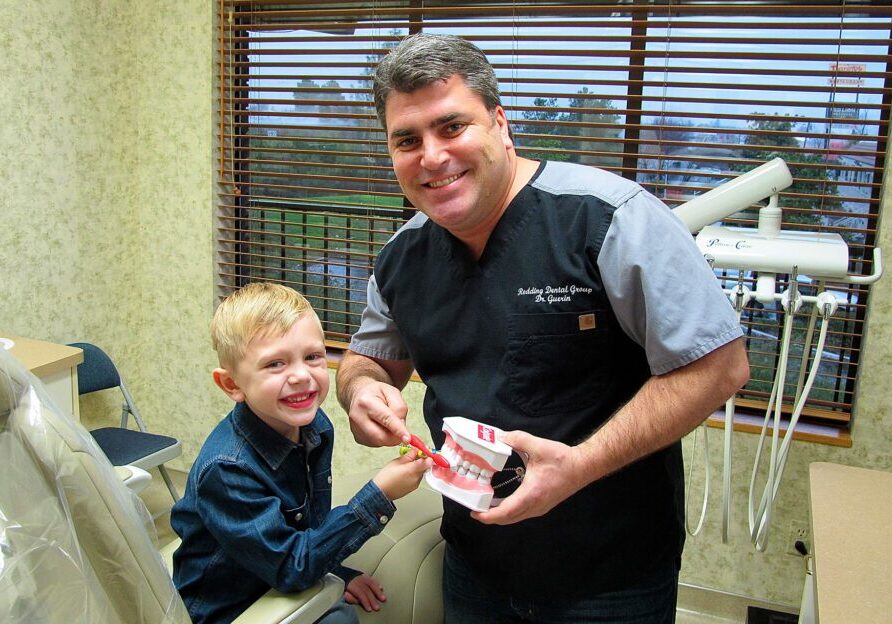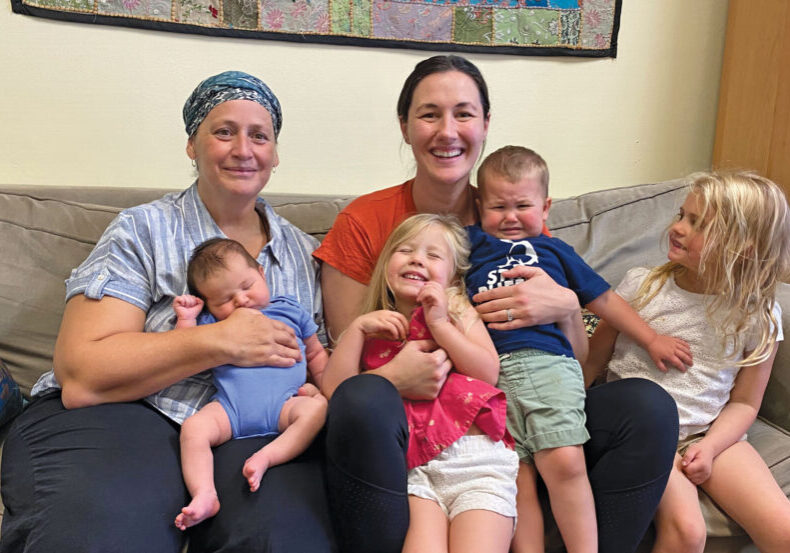Spring is upon us, and nothing reminds us more of fresh love than sunshine and warm air scented with blossoms. Love relationships move through many seasons. Similarly, to Mother Nature, the passing of time brings significant changes to our world and our most intimate relationship. The ability to embrace an ever-shifting relational landscape dictates whether ours will become a mature and strong relationship or wither and die a regretfully early death. One of the most significant shifts in partnerships is having children, and subsequently learning to parent together.
Before children, couples can focus solely on each other. After children arrive, finding time and energy becomes a challenge. Parents, understandably, take a position that children require sacrifices and too often the first thing to suffer is the bond between parents. While there are endless opportunities to sacrifice for our children, it is imperative that the health of the primary caretakers, both individually and as a couple, is not one of those losses. Few things cause greater suffering to children than the failure of their nuclear family. Sadly the demands of caring for children can lead to the greatest marital dissatisfaction. While it is true having children can be the most rewarding experience of our lives, it is possible to reach exhaustion and burnout leaving nothing left to give to ourselves or our partner.
Early in a relationship, we share the dreams we have for our lives, and we excitedly set off to achieve those dreams together. We spend intimate time together which strengthens the couple bond. As life gets hectic with work and the demands of parenting, dreams and intimacy can go dormant, awakening demands that feel like survival. When this occurs, couples can easily slip into an unconscious wintery hibernation. We become brittle and lifeless. Unfortunately, one devastating storm and we can break.
How do we guard against the deterioration of our relationship and ultimately safeguard our children’s world? How do we create happiness with our partner? Loving relationships do not just happen; they are made by setting clear mutual goals with each other, by knowing what we want and what our partners want out of life, by committing the time to not only our children but to each other. In short, relationships require goals, commitment and work.
Children learn to be in a relationship with others by watching their caretakers. Parents have a great opportunity to model a healthy, loving relationship. The tone and happiness of a family start from the top down. So, what are we teaching? This spring take some much-needed time to re-evaluate your intimate relationship and become conscious of the lessons you are teaching your children.
Here are a few practical tips for breathing new life and fresh love into your family.
- Schedule time for just you and your partner. Set aside 10-15 minutes daily to touch base. This adults-only conversation is about anything other than household responsibilities or children. And yes, children can be taught, barring an emergency, this is not a time that they get to interrupt.
- Work together to find a balance in sharing the daily duties of parenting. Re-evaluate this every few months. If there are issues, address them immediately, be flexible and create a new strategy.
- Parents need alone time. Take time to re-energize, so you have something to give to your partner by scheduling alone time for both parents into the family itinerary.
- Every day make a list of ten things for which you are grateful. Some days you may have to dig deep to bring them to mind—do it anyway. This list-making is truly one of the biggest things you can do to increase satisfaction and happiness in your life.
- Every day tell your partner and your children what you appreciate about them.
- Flirt with your partner—send texts, write notes, leave surprises—so they know you are thinking of them.
- Make a habit of hugging, holding hands or some form of daily physical contact. Humans need touch.
- Sexual intimacy is a must; whatever your “normal” is, make it a priority. Foreplay starts the moment your last intimate encounter ends; with words, smiles, hugs and kisses. If life is too busy, schedule it. That may feel awkward at first, but surprisingly it can take a lot of pressure off a couple who are struggling.
- Spend time as a couple with other adults. We get to experience our partners differently when we see them interacting with others, often reminding us why we fell in love with them in the first place.
- Learn to fight fair! We all have disagreements; just don’t let them be destructive. If you’re not sure how, Google it, and you’ll find lots of helpful lists on the Internet, or work with a licensed therapist.
Take a little time this spring to evaluate how you are doing as a partner. It can be easy to focus on meeting our children’s needs and overlook our own needs as well as those of our partner. Healthy individuals can make a healthy couple, and healthy couples can create healthy children. Make the health of your relationship with one another your top priority.
Posted in: Health & Nutrition
Comment Policy: All viewpoints are welcome, but comments should remain relevant. Personal attacks, profanity, and aggressive behavior are not allowed. No spam, advertising, or promoting of products/services. Please, only use your real name and limit the amount of links submitted in your comment.
You Might Also Like...

Understanding Postpartum Depression Enhances Your Pregnancy Education, Expectations, and Empowerment
There are many exciting, and even exhausting, aspects of pregnancy, birth and postnatal care you can expect when expecting. Eating healthy and for two during pregnancy. Setting up the nursery. […]

Motivating Mouths: Help Create A Strong Relationship Between Your Child and Brushing
“Did you remember to brush your teeth?” I said to my then 7-year-old son. “Yes mom. You can check, even my toothbrush is wet,” he said, smiling with a grin […]

Be Well Postpartum: 7 Tips for a Healthy Postpartum Experience
Throughout your pregnancy, you eat the right foods, drink plenty of fluids, rest and try to keep stress to a minimum. You might think once your baby arrives that you […]

The Joy of Pilates
Constant back pain led me to take my first Pilates class in 2009 and I’ve been involved with Pilates ever since. I love the constant challenge, learning about different pieces […]



